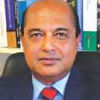Admission limit on LLB (Hons) programme in Bangladesh universities: A call for review

The limit on law admission seems unfair and discriminatory for prospective law students. It has curtailed their freedom of choice of study and employment options. It is discriminatory because prospective non-law students do not face this restriction external to universities. Restricting supply sources does not necessarily improve legal education and the quality of law graduates.
Bangladesh universities, public and private, run their LLB (Hons) programme pursuant to a judicially determined and imposed admission limit of 50 students per semester. This limitation may well have compelling reasons at the time of its imposition. This write-up argues that the limitation so far does not appear to serve its intended purpose and that it warrants a reappraisal with a view to its annulment.
A dispute emerged from the competing (mis)management claims by the Trustee Board of Darul Ihsan University, a private university. Some of its LLB (Hons) graduates were barred from appearing at the Bar examination by the Bangladesh Bar Council (BBC). In their Writ Petition to the High Court Division (HCD), these law graduates challenged the legality of the ban. The HCD was to determine whether the ban was lawful. But the HCD went beyond the relief sought and imposed restrictions on law students' admission, set the admission criteria, and commented upon the management of the law departments of all private universities. It held: 'No private university shall be permitted to admit more than 100 students in a calendar year … [the] BBC itself shall monitor the admission process of the LLB (Honours) course in the private universities':Professor Syed Ali Naki and Ors. v Bangladesh and Ors. (2016) 36 BLD (HCD) 417, para 130, 154. On appeal, the Appellate Division (AD) held: 'No public or private university shall admit students in bachelor of law course more than 50 students in a semester': Bangladesh Bar Council v AKM Fazlul Karim (2017) 14 ADC 271, para 101.
Where did this magic admission number come from and what were the reasons for setting this limit? Nobody knows and the judgments are silent. It is not expected that the public should always understand and be happy with every judgment. But courts are in positions of power to provide justice, and in exercising this power on behalf of the people, they must be able to defend and explain the ways in which they exercise their judicial powers.This 'one number fits all' public and private universities regardless of sizes, capacities, resources, and ages of all law departments requires the century old Dhaka University law department to enrol the same number as that of a recently or yet to be established counterparts. This parity ignores these diversities and creates winners and losers among universities which set dissimilar departmental admission limit based on their logistics and strengths.
The HCD order on all private universities' academic management went beyond any relevance to the relief sought - the eligibility of the Darul Ihsan law graduates to sit for the Bar examination. The AD on appeal rebuked the HCD for passing an order for all private universities when only one of them was a party to the case and found it inconsistent with the law: Bangladesh Bar Council v AKM Fazlul Karim (2017) 14 ADC 271, para 61. Previously, the AD had advised the HCD not to 'enter into academic discussion' and 'go out of their way to find such topics': Bangladesh and Ors.v Idrisur Rahman and Ors. (2009) 29 BLD (AD) 79, para 260. Authorising the Bar Council to be the monitor of 'the admission process of the LLB (Hons) course in the private universities', the HCD apparently created a supra-private university authority over and above the law departmental and university administration, the university academic councils and syndicates, and the University Grants Commission. The Private University Act 2010 prescribes no such authority; nor did the Parliament enacting the Act envisage it.The BBC's Legal Education Committee has a role in regulating entry into the professional practice of law, not private universities' legal education. The HCD drew no distinction between 'Bar admission to be practicing lawyers' and 'university admission to be law graduates'.
The Bangladesh Legal Practitioners and Bar Council Order 1972 authorises the BBC to take measures to 'promote legal education and to lay down the standards to such education in consultation with the universities in Bangladesh imparting such education'. Did the BBC propose and pursue any standard-setting measures to promote legal education and consult with private universities? If restrictive law admission was meant 'to promote legal education', it was done by the Courts, not the BBC. There are instances of joint venture for the promotion of legal education in some countries, where legal professional bodies, law firms, and individual donors provide funding to enrich university law libraries, hire new chairs/professors, establish new seminar/mooting facilities, and offer scholarships/awards for high performing law students. A new law building, called 'the change maker' at Macquarie University, Australia, is named after Justice Michael Kirby, a retired apex court judge in recognition of his substantial financial contribution to the construction of the building.
The limit on law admission seems unfair and discriminatory for prospective law students. It has curtailed their freedom of choice of study and employment options. It is discriminatory because prospective non-law students do not face this restriction external to universities. Restricting supply sources does not necessarily improve legal education and the quality of law graduates. Rather it exposes to the risk of unintentionally minimising competition and maximising monopoly of enrolled lawyers. Presumably, a preconceived notion that whoever studies law will end up as a practicing lawyer lies at the root of this limit, a perception no longer tenable. With the steady WTO-sponsored liberalisation and deregulation of professional and skilled service trade, many law graduates compete with non-law graduates for national and cross-border regional and international employment markets. These law graduates and others working as law firms' advisors, consultants, and interpreters do not need the Bar enrolment. This explains why universities should concentrate on producing law graduates with competitive generic skill like all other graduates. Admittedly, it is widely shared view that the university education quality has deteriorated across the board, not only in legal education. The professional legal system is also not free from criticisms of being cost-ineffective and time-inefficient, among others. There appears to be no tangible evidence of mitigating these systemic problems since the imposition of the limit on law admission. Shifting this role to universities is a misplaced bid to improve the standard of legal practice.
The writer is Emeritus Professor of Law, Macquarie University, Sydney, Australia.

 For all latest news, follow The Daily Star's Google News channel.
For all latest news, follow The Daily Star's Google News channel. 



Comments